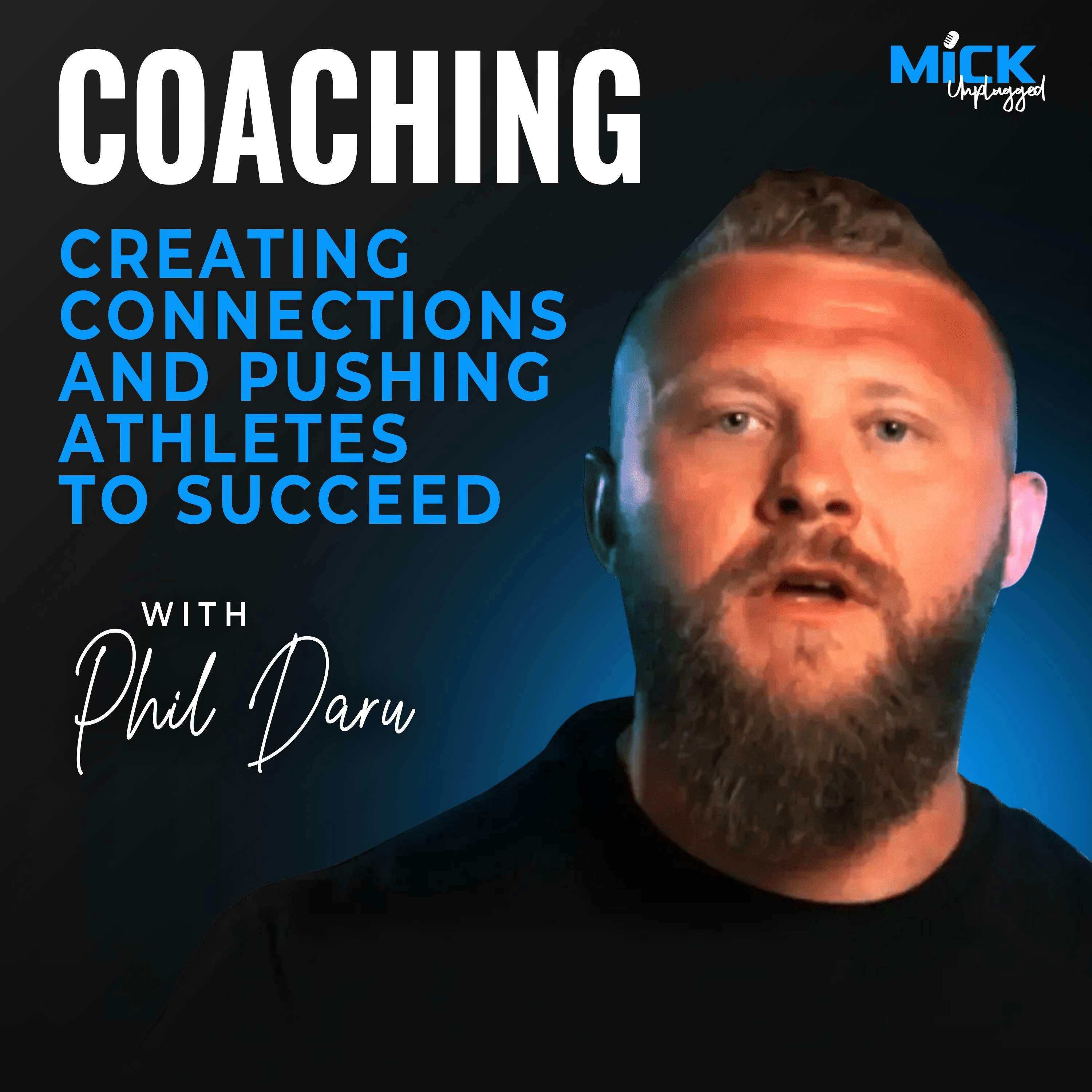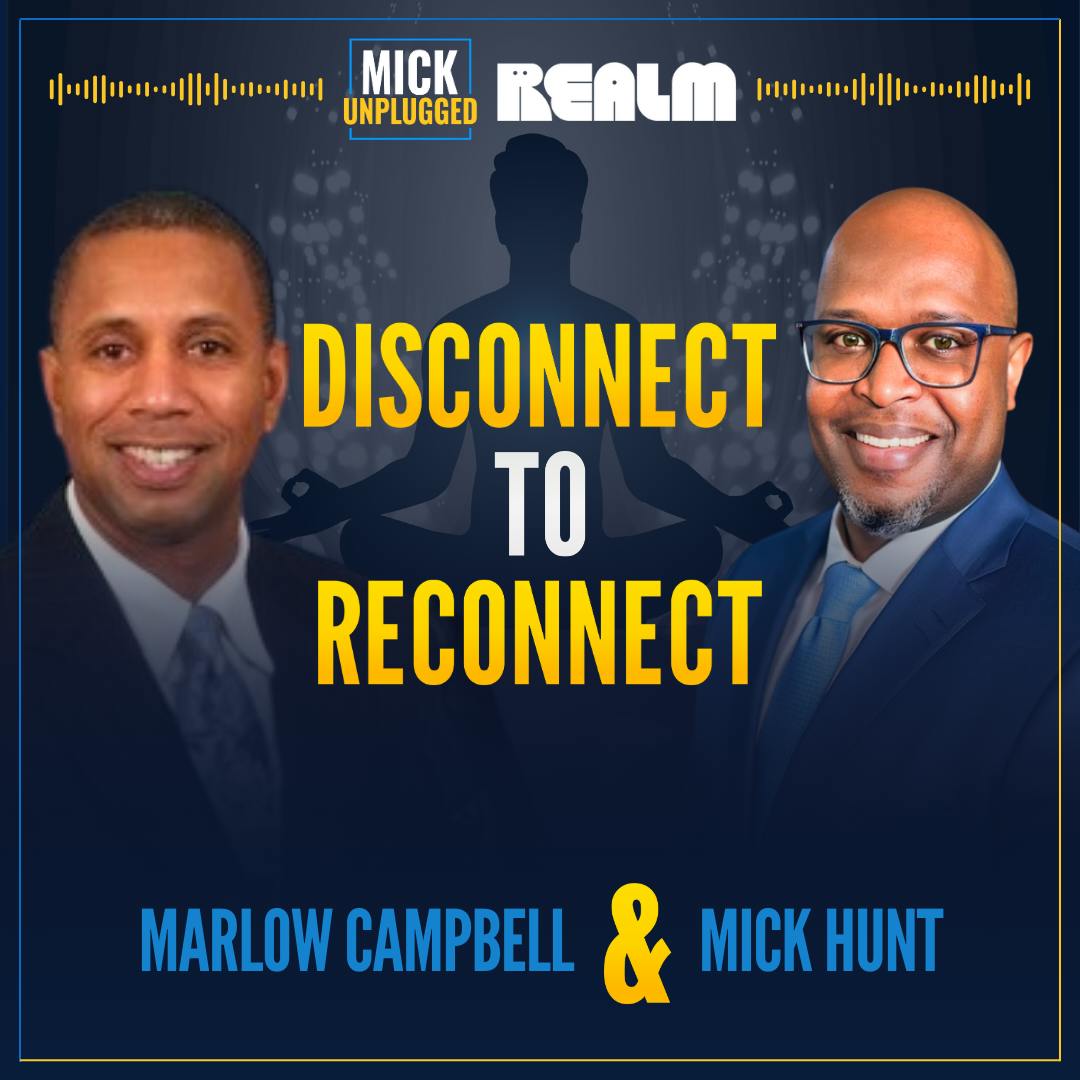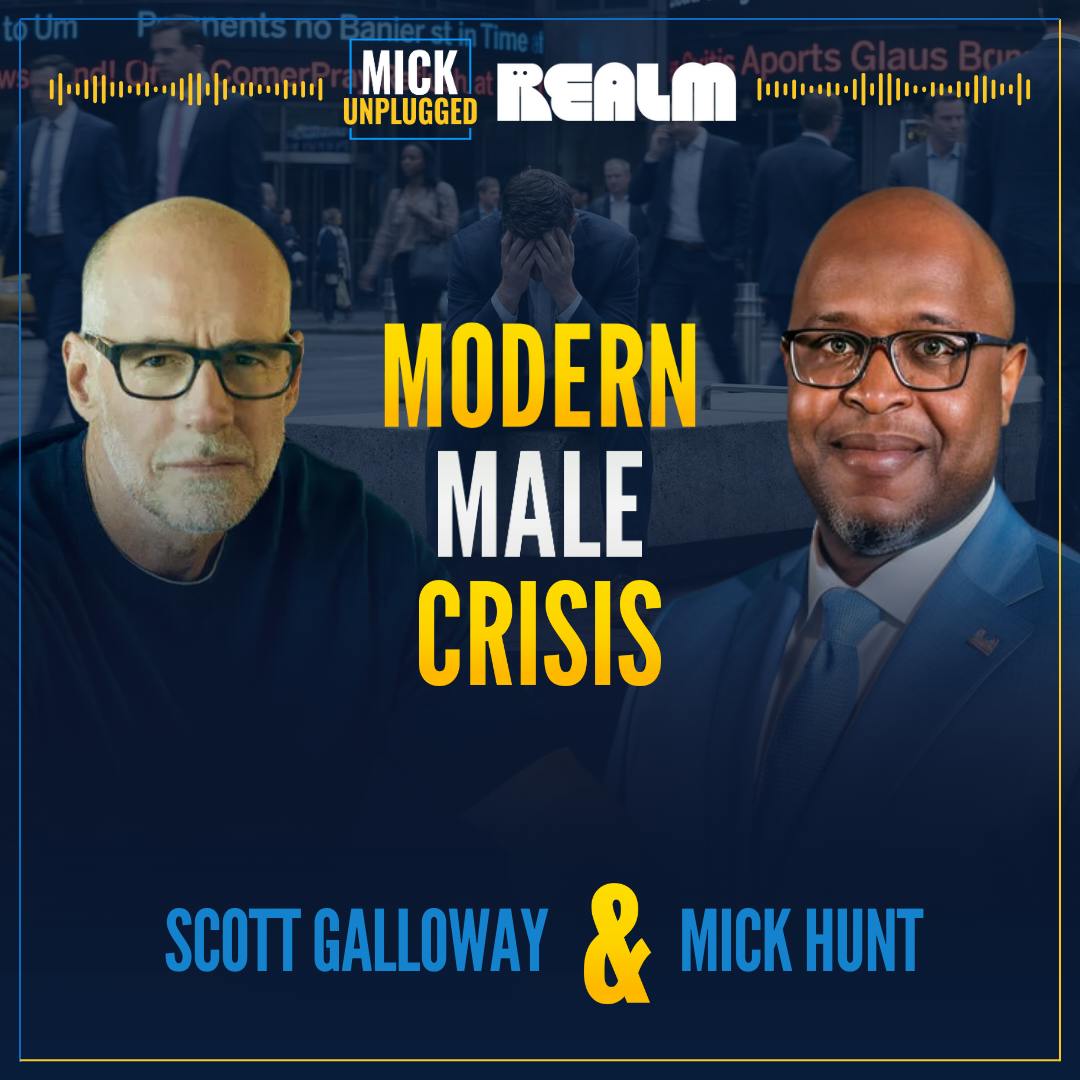Phil Daru | Coaching: Creating Connections and Pushing Athletes to Succeed
Welcome back to another compelling episode of "Mick Unplugged!" Today, we're diving deep into the world of athletic training and personal growth with none other than the renowned coach, Phil Daru. Phil brings a wealth of knowledge from his extensive career working with elite athletes and shares his personalized approach to coaching, emphasizing the need to understand athletes' limitations and tailor programs to their unique characteristics.
Tune in as Phil outlines key strategies for building strength and speed, and offers insights for retired athletes looking to regain their mental motivation. We'll also explore his journey from athlete to coach, the inspiration behind opening his own fitness facility, and his philosophy on leadership and teamwork.
Phil Daru also discusses the value of outdoor play for children, the importance of leadership by example, and shares exclusive details on his social media presence, YouTube channel, and upcoming mentorship and certification programs. Join us for an episode filled with inspiration, practical advice, and a deep dive into the mind of a coach who believes in pushing limits and achieving greatness. Let's get unplugged!
Takeaways
Push yourself beyond the breaking point to achieve improvement and growth.
Engage in introspection and understand your weaknesses to become a better person.
Spending time outdoors and participating in physical activities can lead to personal growth and development.
Coaching is about creating a connection with athletes and finding ways to push them to succeed.
In training, focus on progressive overload, stress management, and building resilience.
Sound Bites
"I've always pushed myself beyond the breaking point or at least as far as I possibly could without breaking points to figure out what's the best way to get the job done.""You always have to find out exactly who you are and... improving daily through constant action.""People just want to be pushed in the right direction and they want to achieve great things and they need a guide to do that."
Top 5 Questions Phil Answers
Strength Development: Phil Daru emphasizes progressive overload, constant stress on the body, and resilience through consistent training. How can these principles be applied in contexts outside of sports, such as in personal or professional development?
Speed Training: In the episode, Phil discusses training methodologies to improve speed. What are some potential challenges of incorporating sprint-based training into an athlete's regimen, and how might these be overcome?
Mental Motivation for Retired Athletes: How can activities that provide a sense of accomplishment, like jiu jitsu, help retired athletes regain their mental motivation? Can this approach be adapted for people not involved in sports?
Role of Outdoor Play for Children: Both Mick and Phil advocate for outdoor play. In modern urban settings, what are some strategies to encourage children to engage more with nature and physical activities outside?
Leadership in Coaching: What qualities do you think make an effective leader in the context of sports coaching? How can these qualities translate to leadership roles outside of sports?
Connect and Discover:https://darustrong.com/https://www.instagram.com/darustrong/twitter.com/BamBamDFPwww.youtube.com/@PhilDaruStrong
★ Support this podcast on Patreon ★ See omnystudio.com/listener for privacy information.
Tune in as Phil outlines key strategies for building strength and speed, and offers insights for retired athletes looking to regain their mental motivation. We'll also explore his journey from athlete to coach, the inspiration behind opening his own fitness facility, and his philosophy on leadership and teamwork.
Phil Daru also discusses the value of outdoor play for children, the importance of leadership by example, and shares exclusive details on his social media presence, YouTube channel, and upcoming mentorship and certification programs. Join us for an episode filled with inspiration, practical advice, and a deep dive into the mind of a coach who believes in pushing limits and achieving greatness. Let's get unplugged!
Takeaways
Push yourself beyond the breaking point to achieve improvement and growth.
Engage in introspection and understand your weaknesses to become a better person.
Spending time outdoors and participating in physical activities can lead to personal growth and development.
Coaching is about creating a connection with athletes and finding ways to push them to succeed.
In training, focus on progressive overload, stress management, and building resilience.
Sound Bites
"I've always pushed myself beyond the breaking point or at least as far as I possibly could without breaking points to figure out what's the best way to get the job done.""You always have to find out exactly who you are and... improving daily through constant action.""People just want to be pushed in the right direction and they want to achieve great things and they need a guide to do that."
Top 5 Questions Phil Answers
Strength Development: Phil Daru emphasizes progressive overload, constant stress on the body, and resilience through consistent training. How can these principles be applied in contexts outside of sports, such as in personal or professional development?
Speed Training: In the episode, Phil discusses training methodologies to improve speed. What are some potential challenges of incorporating sprint-based training into an athlete's regimen, and how might these be overcome?
Mental Motivation for Retired Athletes: How can activities that provide a sense of accomplishment, like jiu jitsu, help retired athletes regain their mental motivation? Can this approach be adapted for people not involved in sports?
Role of Outdoor Play for Children: Both Mick and Phil advocate for outdoor play. In modern urban settings, what are some strategies to encourage children to engage more with nature and physical activities outside?
Leadership in Coaching: What qualities do you think make an effective leader in the context of sports coaching? How can these qualities translate to leadership roles outside of sports?
Connect and Discover:https://darustrong.com/https://www.instagram.com/darustrong/twitter.com/BamBamDFPwww.youtube.com/@PhilDaruStrong
★ Support this podcast on Patreon ★ See omnystudio.com/listener for privacy information.
Press play and read along
Transcript
Transcript is processing—check back soon.
Mick Unplugged — Phil Daru | Coaching: Creating Connections and Pushing Athletes to Succeed





